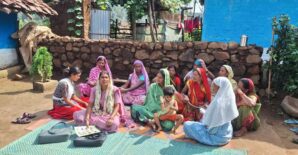In Asia, the low status of women is one of the main factors contributing to the poor nutritional status of children. In Bangladesh, despite economic growth, it is observed that there has been a modest reduction in the poverty rate headcount of about 1.5 percent a year since the early 1990s. Nonetheless, the child malnutrition rate remains among the highest in the world.
A new discussion paper What dimensions of women’s empowerment matter most for child nutrition? Examines the role played by women’s empowerment and endowments, such as maternal schooling and maternal height, in relation to childhood malnutrition in Bangladesh.
It concludes that the status of women in the home plays a crucial role in how women are able to care for children. For example, a woman living in a high-income household may be able to afford good-quality food and medicine for her children, but may not be able to take part in decision making about household expenditures or doctor visits. Many studies have shown that improving women’s empowerment can lead to an improvement in children’s growth rates and diets.
‘The results of the study indicate that domestic violence, maternal education, and height, and the women’s age when she marries significantly impact child stunting, especially chronic malnutrition,” said Purnima Menon, senior researcher, IFPRI.
The study suggests that the policymakers should seek an increase in individual and community interventions that can reduce the prevalence of violence and empower women to achieve better health and well-being outcomes. Agnes R. Quisumbing, senior researcher, IFPRI argues that “additional research is needed to explore the ways in which investments to improve the nutritional and educational status of girls before they become mothers can be strengthened and sustained”.



